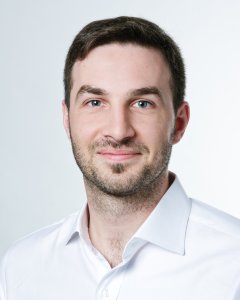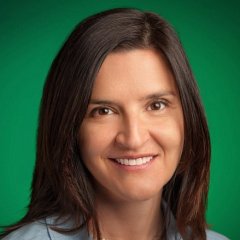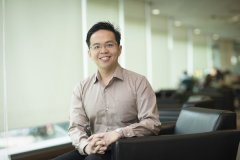KeynotesRequirements Engineering 2024
Keynote Speakers
Jan Mendling

Department of Computer Science, Humboldt-Universität zu Berlin, Germany
Title: Automation for Requirements Engineering: Opportunities and Pitfalls
Abstract: Recent technologies like ChatGPT inspire ideas of increasing automation for professional tasks in various domains. This includes among others requirements engineering. So far, however, the divide between useful and harmful automation has been blurry and in flux. In this keynote, I will discuss foundational concepts with which automation has been analyzed. Using these concepts, I will discuss the opportunities arising for requirements engineering from the advent of natural language processing, image processing, and event sequence analysis techniques. Furthermore, I will discuss important pitfalls that have been well documented for other automation technologies in the past.
Bio: Jan Mendling is the Einstein-Professor of Process Science with the Department of Computer Science at Humboldt-Universität zu Berlin, Germany. His research interests include various topics in the area of business process management and information systems. He has published, among others in Management Information Systems Quarterly, ACM Transactions on Software Engineering and Methodology, IEEE Transactions on Software Engineering, Journal of the Association of Information Systems and Decision Support Systems. He is one of the two founding editors-in-chief of Process Science and the chair of the steering committee of the International Conference on Business Process Management. He is co-author of the textbooks Fundamentals of Business Process Management, Second Edition, and Wirtschaftsinformatik, 12th Edition.Marija Mikic

Google Labs
Title: Paradigm Shift with GenAI
Abstract: GenAI is bringing a profound shift in just about every area of our lives - how we interact, work, and as engineers, how we build products and systems. Some changes are already here while others will take time to play out. In this talk I will focus on what this generational technology shift means for the current web, and highlight some of the areas we should be focused on to successfully apply this technology to many domains.
Bio: Marija Mikic is a Senior Engineering Director in Core Labs. She is responsible for leading engineering teams focused on discovering and delivering products, technologies and platforms that advance Google’s mission. Before this role, she was the Site Lead for Google Los Angeles and led engineering teams working on YouTube Ads, Ads Privacy and Safety, as well as human evaluation. Mikic is also very active in the software engineering research community and academia. She holds a PhD in software engineering from USC. Additional information can be found at: https://www.linkedin.com/in/marija-mikic-7983427/.David Lo

School of Computing and Information Systems, Singapore Management University, Singapore
Title: Requirements Engineering for Trustworthy Human-AI Synergy in Software Engineering 2.0
Abstract: Software Engineering 2.0 envisions trustworthy and synergistic collaborations between humans and AI agents that are diverse, responsible, and autonomous, aiming to build the software of tomorrow—a vision that has garnered significant attention recently. Despite this growing interest, we are only beginning to unravel the complexities of fostering this synergy to develop trusted software that benefits society. This keynote will (i) highlight existing efforts to engineer the requirements for this new paradigm of software development, and (ii) chart the road ahead where Requirements Engineering can play a crucial role in defining the sine qua nons— the indispensable elements that ensure Software Engineering 2.0 can meet the diverse needs of various stakeholders.
Bio: David Lo is the OUB Chair Professor of Computer Science and Director of the Center for Research in Intelligent Software Engineering (RISE) at Singapore Management University. Championing the area of AI for Software Engineering (AI4SE) since the mid-2000s, he has demonstrated how AI — encompassing data mining, machine learning, information retrieval, natural language processing, and search-based algorithms — can transform software engineering data into actionable insights and automation. Through surveys and interviews, he has identified practitioners' pain points and explored the acceptance thresholds for AI-powered tools, effectively performing requirements engineering for AI4SE research. His contributions have led to over 20 awards, including two Test-of-Time awards and ten ACM/IEEE Distinguished Paper awards, gathering more than 30,000 citations. An ACM Fellow, IEEE Fellow, ASE Fellow, and National Research Foundation Investigator (Senior Fellow), Lo has also served as a PC Co-Chair for ASE'20, FSE'24, and ICSE'25. For more information, visit: http://www.mysmu.edu/faculty/davidlo/Mon 24 JunDisplayed time zone: (UTC) Coordinated Universal Time change
09:00 - 10:15 | |||
09:00 75mOther | Overview of RE Cares, ADHD Samtökin Presentations RE Cares | ||
10:45 - 12:15 | |||
10:45 90mOther | Design Evaluation, Requirements Analysis, Creativity Intro RE Cares | ||
13:45 - 15:15 | |||
13:45 90mOther | Creativity Exercises and Requirements Elicitation RE Cares | ||
15:45 - 17:30 | |||
15:45 1h45mOther | Creativity Exercises and Requirements Elicitation RE Cares | ||
Wed 26 JunDisplayed time zone: (UTC) Coordinated Universal Time change
08:45 - 10:15 | |||
08:45 15mTalk | Conference Opening Keynotes | ||
09:00 75mTalk | Jan Mendling Keynotes File Attached | ||
08:45 - 10:15 | |||
08:45 15mTalk | Conference Opening Keynotes | ||
09:00 75mTalk | Jan Mendling Keynotes File Attached | ||
10:15 - 10:45 | |||
10:15 30mCoffee break | Coffee Break Catering | ||
Thu 27 JunDisplayed time zone: (UTC) Coordinated Universal Time change
09:00 - 10:15 | |||
09:00 - 10:15 | |||
10:15 - 10:45 | |||
10:15 30mCoffee break | Coffee Break Catering | ||
Fri 28 JunDisplayed time zone: (UTC) Coordinated Universal Time change
09:00 - 10:15 | |||
09:00 - 10:15 | |||
10:15 - 10:45 | |||
10:15 30mCoffee break | Coffee Break Catering | ||
14:45 - 15:15 | |||
14:45 30mDay closing | Conference Closing + RE 2025 Announcement Keynotes Grischa Liebel Reykjavik University | ||
Accepted Papers
| Title | |
|---|---|
| Conference Opening Keynotes |